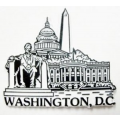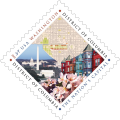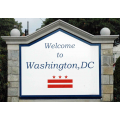If you enjoy taking care of others, becoming a licensed practical nurse (LPN) could be the perfect career for you. As an LPN, you would provide basic personal care for patients, assisting them with tasks like bathing, dressing, and eating. You would also provide basic medical care under the supervision of registered nurses and doctors, taking samples for tests, checking vital signs, and observing patients for symptoms. Additional tasks include changing bedding and bandages as well as giving medication to patients as needed.
District of Columbia
We've organized a comprehensive list of nursing schools in Washington, DC. Below you'll find information on specific nursing programs such as LPN certificates and ADN, BSN, and MSN degrees.
District of Columbia nursing programs and careers
Washington DC is home to a number of accredited nursing schools dedicated to helping students launch careers in the healthcare field. As a nurse, you have a wide field of career options available, each one requiring a different level of education. Each of these nursing paths also requires successfully passing a licensure or certification examination at the conclusion of your studies.
A master of science in nursing (MSN) offers the perfect solution for those who already hold a bachelor’s degree in nursing and are looking to further enhance their skills. A master’s degree allows nurses to specialize in a particular field and focus on those aspects of nursing about which they are truly passionate.
To find a job in the healthcare industry today, you must have a solid education. Most major employers are looking for registered nurses (RNs) who have bachelor’s degrees rather than associate’s degrees. Though bachelor’s degrees require a four-year commitment as opposed to two-year associate’s degrees, the extra education makes you more attractive to prospective employers and sets you up for greater earning potential in the future.
The Washington, DC, area maintains a high demand for nurses, particularly registered nurses (RNs). These nurses take on responsibilities that typically require a greater level of technical expertise than the more basic nursing duties of bathing patients or changing bandages. As a result, salaries tend to be higher as well: the median pay for RNs in the DC area is $76,310. Some RNs earn even higher salaries, up to as much as $89,000 or more. Over 11,000 people are employed as nurses in the city, and pursuing the right degree can land you in this lucrative career field.
If you enjoy taking care of others, becoming a licensed practical nurse (LPN) could be the perfect career for you. As an LPN, you would provide basic personal care for patients, assisting them with tasks like bathing, dressing, and eating. You would also provide basic medical care under the supervision of registered nurses and doctors, taking samples for tests, checking vital signs, and observing patients for symptoms. Additional tasks include changing bedding and bandages as well as giving medication to patients as needed.
The all-in cost of education is a critical consideration for any potential nursing school student. Tuition is the largest expense category, and this cost will vary significantly from one institution to another. Most private colleges have higher tuition rates than public schools at in-state costs. Community colleges are frequently the least expensive option, although their program offerings are limited to two-year associate's degrees and shorter-length certificates. In this vein, program length is also an important driver of the all-in cost -- not only bachelor's vs. associate's vs.
Private schools are traditional colleges and universities that offer a range of one-year certificate, two-year associate's degree, and four-year bachelor’s degree programs. Some also offer postgraduate studies as well. Private universities do not receive subsidies from state governments, so their tuition is generally higher than public universities. However, they offer many benefits that public universities cannot. For instance, class sizes are typically smaller at private colleges.
Public colleges and universities include both two-year community colleges and traditional four-year colleges. Two-year institutions grant certificates and associate's degrees. Four-year colleges offer bachelor’s degree programs, and most public universities provide graduate coursework as well. These schools receive state government funding to offset their operational costs. Though they still charge tuition, in-state (or in-county) residents will pay less to attend a public college or university than a private institution.








